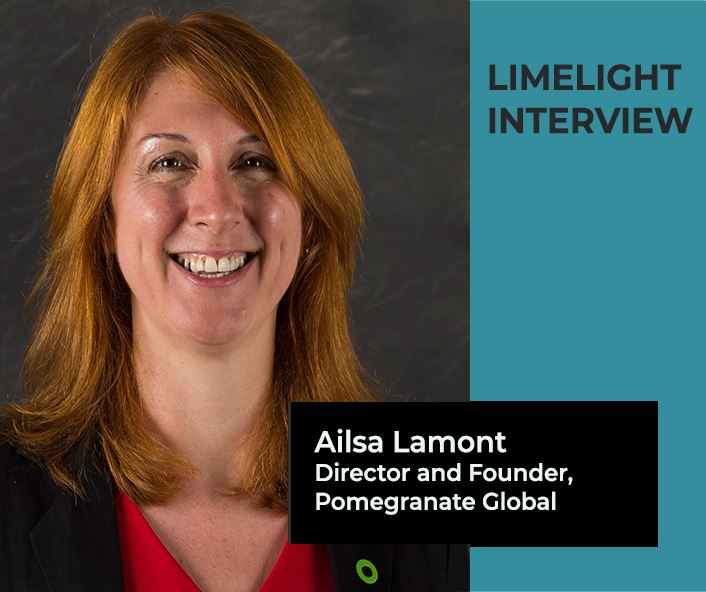 What is your interest in tackling climate change?
What is your interest in tackling climate change?
I first became aware of climate change when I studied as an exchange student in Germany at the age of 16. It was this international education experience that first led my awareness of climate change. My native Scotland was far behind Germany when it came to recycling policies and environmental awareness. This awareness, instilled in me a constant awareness in my career and personal life.
What is your interest in tackling climate change and how do we address this in international education?
I first became aware of climate change when I studied as an exchange student in Germany at the age of 16. It was this international education experience that first led my awareness of climate change. My native Scotland was far behind Germany when it came to recycling policies and environmental awareness. This awareness, instilled in me a constant awareness in my career and personal life.
What is your interest in tackling climate change and how do we address this in international education?
I first became aware of climate change when I studied as an exchange student in Germany at the age of 16. It was this international education experience that first led my awareness of climate change. My native Scotland was far behind Germany when it came to recycling policies and environmental awareness. This awareness, instilled in me a constant awareness in my career and personal life.
What is your interest in tackling climate change and how do we address this in international education?
I first became aware of climate change when I studied as an exchange student in Germany at the age of 16. It was this international education experience that first led my awareness of climate change. My native Scotland was far behind Germany when it came to recycling policies and environmental awareness. This awareness, instilled in me a constant awareness in my career and personal life.
I worked with Rob McDonald who researched the carbon footprint of international education and I became painfully aware of my own carbon footprint and that of my colleagues as our jobs necessitated getting on planes on a weekly basis. During my tenure at CQUniversity , I was managing the international office of a multi campus university and separated by huge distances. The only option was taking regular flights for meetings.
For 16 years, I worked in international education within Australian universities. For the last three or four years, I looked at social innovation and at the student experience to make that more meaningful and tangible. She was working on how to give students an experience that was more impactful environmentally and socially. It was at this stage that these paths converged and the awareness I developed in Germany all those years ago, was now being met with an understanding of how we contributed to climate change in the international education industry.
How did you start and how did you grow Pomegranate?
I spent three months researching climate change, and the more I learned, the more I knew there was no turning back. I ran my first workshop and confesses it was horrible. In the workshop, I focused too much on the problems and not on the solutions. Following this, I thought I had made a terrible mistake. However, that night, I had a dream that the waters were rising around me and I was shouting at everyone through a megaphone that we needed to wake up and do something to tackle climate change. If that wasn’t a sign to keep going, the next morning I received an email from the Al Gore Foundation inviting me to attend their next Climate Reality Project training in Pittsburgh, USA.
Was this the turning point for you and your resolution to continue with the topic of climate change and running your own business?
The Al Gore training was a great resource and provided me with great support. The training is all about amplifying peoples impact and spreading the message, but also how to spread the message. I learned how to deal with media, got plugged into a wonderful network of people and tapped into resources that enables me to professionalise more. The network is collaborative and just what a one woman business needs starting out.
Has the message been getting through and how do we reconcile climate change in our industry where we travel so much and promote international travel amongst students?
I explained that it is certainly an ethical dilemma. We need to start with ourselves, start understanding where our emissions are coming from and how we can counteract that. Yes, we need to reduce our travels and become aware of what is necessary and what is not. I personally uses the company 15 Trees whenever I have to fly for work to offset my carbon footprint from flying. It is estimated that we need to plant one tree for every hour that we spend flying.
The message is spreading. I am now part of an informal network including environmental and climate change advocates around the globe. I gave a presentation at EAIE this past September with likeminded people on the topic of the greening of comprehensive internationalisation . We explored what strategies and techniques international educators can employ to aid the ‘greening’ of internationalisation? The session looked at the six pillars of comprehensive internationalisation through a 'green lens', offering practical things educators can do to respond to climate change, declining biodiversity and habitat destruction. I delivered a poster session on “How the international education sector can take action on climate change”.
I also participate in CANIE - Climate Action Network for International Educators, a grassroots initiative formed by a diverse group of people working in international education who see the need for action to reduce our sector's greenhouse gas emissions and the opportunity to use climate action as a vehicle to improve the student experience. Our aim is to shine a spotlight on the issues, and to provide training and resources to help individuals to take action and drive change within their institutions and organisations.
There are lots of ways universities can address climate change, and the message is finally getting through that they now need to. Time Higher Education has introduced a new impact ranking on a university’s performance on sustainability goals. If it is not the carrot, then will it need to be the stick to wake up universities to the need for climate change response?
Do you ever feel you are facing an insurmountable task or that the problem is just too huge for a small number of people to solve?
I feel that there is an opportunity for everyone. Individually, we can all make changes and that is why education is critical. I have held workshops where students have entered the room knowing nothing about climate change or not caring much about what they can do. After the workshop, they are enthusiastic and keen to make a change. It is not that difficult to get people on board.
Collectively and within our sector, there is an opportunity. We can really think about travel, what is necessary and how we look at designing programs with more of an environmental impact. How we recruit, using online rather than printed marketing materials, calling on conference providers to be more environmentally friendly. What banks do we use on campus and how ethical are they with their investments, channel the students towards the more ethical banks and the other banks will start noticing. These are just a small number of obvious changes we can make. But, if we collectively make these changes, we can have an impact.
Some of the statistics are depressing, and you do need to demonstrate how serious the situation is but without focusing overly on the doom and gloom. You also need to give people hope. Al Gore calls this the hope budget. If people do not have hope, they can become paralytic to change. People feel good when they are making a change, even if that change starts with one small thing every day. We do not all need to be climate scientists, we just need to understand what small changes we can make, and build these into bigger changes .
You might worry that what you do won’t count for much, but collective action mounts up and can help tip the scales. Even more importantly, taking individual action gives you the satisfaction of knowing that you are making a difference and contributes to building a broader consensus in society around the need for change.
